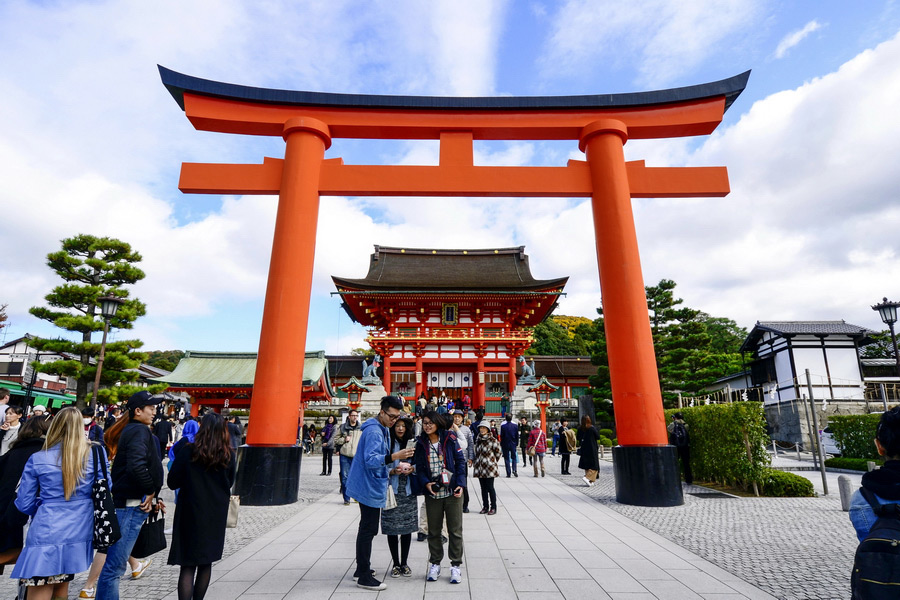Labor Thanksgiving Day

Labor Thanksgiving Day (勤労感謝の日, Kinrō Kansha no Hi) has been celebrated on November 23 since 1948 as a national holiday in Japan, honoring labor and expressing gratitude for hard work.
This holiday is a modern continuation of Niinamesai (新嘗祭), an ancient ritual dedicated to celebrating the harvest and giving thanks for the completion of agricultural work. The festival is first mentioned in the Nihon Shoki (日本書紀, The Chronicles of Japan) during the reign of Emperor Jimmu (660–585 BCE), was formally observed under Emperor Seinei (480–484 CE), and took on a more structured form under Emperor Tenmu (667–686 CE).
Each emperor participated in Niinamesai by offering freshly harvested rice to the gods of Heaven and Earth and being the first to taste the new crop. Traditionally, the ceremony was held at the Three Palace Shrines in the Imperial Palace of Tokyo, as well as at the Ise and Izumo Shrines.
The date November 23 was officially set in 1873 when Japan transitioned to the Gregorian calendar, and in 1948, the holiday was renamed Labor Thanksgiving Day, shifting its focus from harvest rituals to recognizing labor and human rights while maintaining its spirit of gratitude.
On Labor Appreciation Day, it is customary for people to acknowledge each other's contributions to work and society. Children often express their gratitude by giving handmade cards and crafts to police officers. Various professional conferences and agricultural exhibitions take place, aimed at industry improvement. During these events, outstanding participants may receive the prestigious Imperial Award or the Minister of Agriculture Award.
One significant event on this day is Nogyosai, a holiday dedicated to agricultural workers. Established in 1962, it has its own traditions—farmers bring a portion of their harvest to local or larger temples and offer prayers to the spirits for future abundance.
Although Labor Appreciation Day is not widely associated with entertainment, one notable exception is the Nagano Workers' Festival, which concludes with a spectacular fireworks display. This annual event draws hundreds of thousands of spectators.
Beyond the celebrations, Labor Appreciation Day serves as a reminder that respect for all professions and fair treatment of workers are essential for a thriving society. On this day, people in Japan reflect on their contributions to the well-being of others and consider how their work benefits the community. The holiday underscores the importance of respect and cooperation in the workplace—values deeply ingrained in Japanese culture, where dedication and collective effort have always been central to societal progress.

